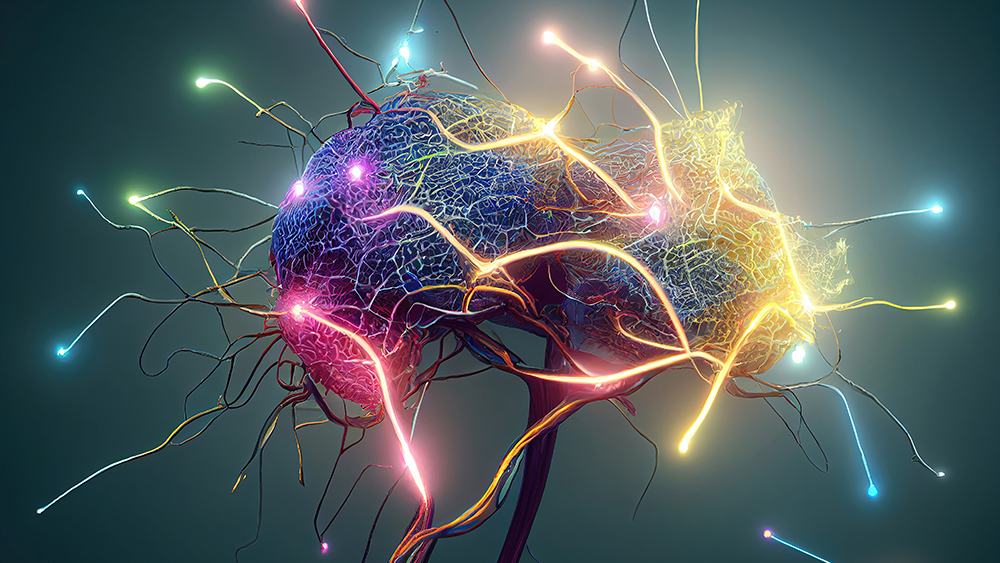 Parler
Parler Gab
Gab
Nanotechnology, a cutting-edge discipline at the intersection of science, engineering, and technology, is revolutionizing myriad industries with its focus on manipulating matter at the nanoscale. At this minuscule level, materials exhibit unique properties and behaviours, paving the way for unprecedented advancements in fields as diverse as medicine, electronics, energy, and materials science.A “nanoparticle” is a particle of matter that is less than 100 nanometers in diameter. Highly specialized equipment is necessary to work with nanoparticles, because they are way too small to be seen with the naked eye…
One of the hallmarks of nanotechnology is the utilization of nanoparticles, minute entities often ranging from 1 to 100 nanometers. These particles, when engineered with precision, bring forth distinctive characteristics that can redefine the functionality of materials. In medicine, for instance, nanoparticles serve as drug carriers, enabling targeted delivery and enhancing therapeutic efficacy while minimizing side effects. Nano-engineered materials have found their niche in the realm of electronics.Scientists are promising us that nanotechnology has the potential to make all of our lives much better. But are there any dangers? Many are concerned that the healthcare industry is one area where nanoparticles are already being used on a widespread basis…
The healthcare sector is witnessing a transformative impact through nanotechnology. Nanomedicine, an interdisciplinary field, employs nanoscale tools for the diagnosis, imaging, and treatment of diseases. Nanoparticles, with their ability to navigate biological barriers, offer a novel approach to targeted drug delivery, ensuring precise and efficient treatment with reduced side effects.“Precise and efficient treatment with reduced side effects” certainly sounds good. But there have been other developments in this field that are rather ominous. For example, a team of researchers in South Korea has discovered a way to use nanoparticles to “control the minds of mice”…
Scientists at the Institute for Basic Science (IBS) in South Korea have developed a new way to control the minds of mice by manipulating nanoparticle-activated “switches” inside their brains with an external magnetic field. The system, dubbed Nano-MIND (Magnetogenetic Interface for NeuroDynamics), works by controlling targeted regions of the brain by activating neural circuits.Using an external magnetic field, these scientists were able to make mice eat more or eat less. And in another experiment, they were able to manipulate the maternal behavior of female mice…
In experiments, the researchers activated inhibitory neurons within specific areas of the brain to increase appetite and feeding behaviors by 100 percent. By exciting these neurons, the team could conversely reduce the food the mice ate by 50 percent. They also used the system to selectively activate receptors responsible for maternal behaviors in the brains of female mice that hadn’t reproduced. By activating these pathways, the mice “significantly increased nurturing behaviors, such as bringing pups to their nest, similar to maternal mice,” according to a press release.Of course this is just the tip of the iceberg. Read more at: MichaelTSnyder.Substack.com
Trump’s Stargate project: Gateway to US AI dominance or dystopian cyberpunk nightmare?
By News Editors // Share
By News Editors // Share
Russia enters the fray: Trump’s Panama Canal claims threaten global trade neutrality
By Ramon Tomey // Share
Royal jelly: Anti-diabetic healing gift from the bee hive
By News Editors // Share
Biden gave China the AI advantage
By Willow Tohi // Share
Governments continue to obscure COVID-19 vaccine data amid rising concerns over excess deaths
By patricklewis // Share
Tech giant Microsoft backs EXTINCTION with its support of carbon capture programs
By ramontomeydw // Share
Germany to resume arms exports to Israel despite repeated ceasefire violations
By isabelle // Share










